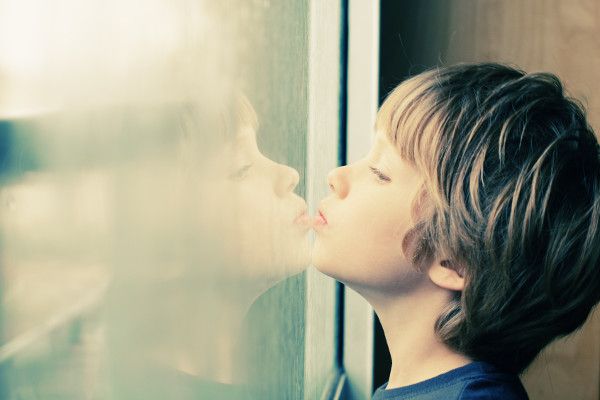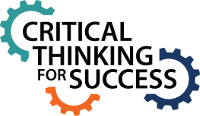We’ve Heard of Autism Spectrum Disorder—But What Is It?
Even if you aren’t totally clear on the specifics of autism spectrum disorder, chances are you’ve at least heard about it in the news. Reports have warned that more and more children are being diagnosed with the condition, and debates have raged online for years over whether vaccines are to blame. So, what is this condition that’s so often talked about but so little understood?
Autism spectrum disorder is the diagnosis which combines several conditions previously considered separate. Those conditions include autism, Asperger’s syndrome, pervasive developmental disorder not otherwise specified (PDD-NOS), and sometimes childhood disintegrative disorder (CDD).
Let’s go through a more detailed breakdown of autism spectrum disorder—what its symptoms are, what causes it, and what treatment options are available.
What Are the Symptoms of Autism Spectrum Disorder?
As the name implies, autism spectrum disorder is a diagnosis that describes a broad spectrum of conditions and symptoms. However, these symptoms can be broken up into three main categories: difficulty with social interaction, difficulty with communication, and repetitive behaviors. These symptoms all start in infancy. Let’s take a closer look at each category.
Social Interaction
 In infancy, this begins with symptoms like failing to respond to their names, not starting to babble until later than most, and not showing much interest in people. As toddlers, they don’t imitate others, and they prefer to play alone since social games are especially difficult.
In infancy, this begins with symptoms like failing to respond to their names, not starting to babble until later than most, and not showing much interest in people. As toddlers, they don’t imitate others, and they prefer to play alone since social games are especially difficult.
Later, children and adults with autism have trouble understanding what others are thinking and feeling. They find it difficult to interpret meaning from gestures and expressions—a phrase like “what are you doing” means the same thing whether it’s said with a curious smile or an interrogating scowl. This makes it hard for them to predict or understand others’ perspectives, actions, or goals.
Because of all this, children on the spectrum also have a hard time regulating their emotions and behavior. When frustrated or overwhelmed, they frequently have outbursts that are labelled immature, disruptive, or aggressive.
Communication
Closely tied to social interaction is communication. People with autism spectrum disorder often have delays in their development of communication skills. They may start babbling, using gestures, and speaking later than is typical, or may even lose the babbling and gestures after having them in the first few months.
Once they do begin to speak, they often do so in unusual ways. Children on the spectrum may have trouble putting words together into sentences that make sense. They might fixate on a word or phrase and repeat it over and over, or go through a phase of repeating back whatever they hear.
Alternatively, some children with autism spectrum disorder develop great vocabularies for their age. They still have trouble with expressions and gestures, though. Children with autism may use expressions or tones which don’t match what they’re saying, or speak in monotone. They may also speak in monologues on their favorite topic, not understanding the give and take of ordinary conversation. Sarcasm and irony are especially hard for them to read.
Repetition
People with autism spectrum disorder often engage in repetitive activities. Young children may compulsively flap their hands, rock back and forth, or repeat sounds or phrases.
As they grow older, people on the spectrum tend to restrict their experiences and activities to a very limited set of categories. They like repetition and familiarity, and they build and expect a consistent order in their environment and routine. Children may spend hours lining toys or other objects up in a particular order rather than playing pretend with them. Adults may obsessively arrange their house a certain way and grow upset if something changes.
This plays out with interests as well. People with autism spectrum disorder tend to fixate on their interests with intense preoccupation bordering on obsession. They often develop an excruciatingly detailed knowledge of any subject that they grab hold of. It could be collecting model airplanes, or seeking out and reading every bit of biographical information about Steve Jobs.
What Causes Autism Spectrum Disorder?
The exact causes of autism spectrum disorder are still unknown, but there are two general areas where research is concentrated.
The first is genetic problems. It seems that in some children, the disorder might be connected to a genetic disorder like fragile X syndrome or Rett syndrome. Other times, genetic changes might make the child susceptible to the disorder or increase exposure to environmental risks. Finally, some genes seem to affect the way the brain develops and communicates with itself, and they might control the severity of symptoms. These issues can be inherited or spontaneous.
The second is environmental factors. Scientists aren’t sure exactly what might cause autism spectrum disorder. However, ongoing research is investigating air pollutants, viral infections, and complications during pregnancy as possible causes.
What we do know for sure, however, is that there is no evidence to support the idea that vaccines are the cause, despite extensive research. The study that first spread this notion and sparked the anti-vaccine movement has been discredited and retracted by the journal that published it. The author, Andrew Wakefield, has been stripped of his medical license. Researchers have not been able to replicate the results or find any link between vaccines and autism.
How is Autism Treated?
 While there’s no cure for autism spectrum disorder, there are many therapies which are used to treat it and set the child up to better tackle the challenges it presents. Children with the condition often do well in highly structured programs, where experts provide individualized, intensive therapy to build their social skills, communication skills, and positive behavior. The intent is to minimize their symptoms as much as possible. The earlier these interventions start, the more successful they tend to be.
While there’s no cure for autism spectrum disorder, there are many therapies which are used to treat it and set the child up to better tackle the challenges it presents. Children with the condition often do well in highly structured programs, where experts provide individualized, intensive therapy to build their social skills, communication skills, and positive behavior. The intent is to minimize their symptoms as much as possible. The earlier these interventions start, the more successful they tend to be.
In some cases, doctors might also prescribe medications to control other symptoms like hyperactivity or anxiety.
Yet, maybe you’re looking for ways to avoid the use of drugs. Or, maybe you’re seeking therapy programs to replace or complement those which are traditionally offered for autism in Deerfield, IL and the Chicagoland area.
In that case, stop by Critical Thinking For Success. Our cognitive skills training is designed to hone in on the cognitive skills affected by a client’s condition, in the areas of social skills, comprehension, and emotional control. Over time, with one-on-one coaching sessions as well as weekly and daily exercises and puzzles, the client builds those skills up, helping to counteract and overcome the effects of this neurological condition.
So, give us a call at 847-845-0422. We’ll give you a free consultation, and we can discuss your next steps. Together, we’ll ensure that your child doesn’t just live with autism spectrum disorder—they’ll thrive!
